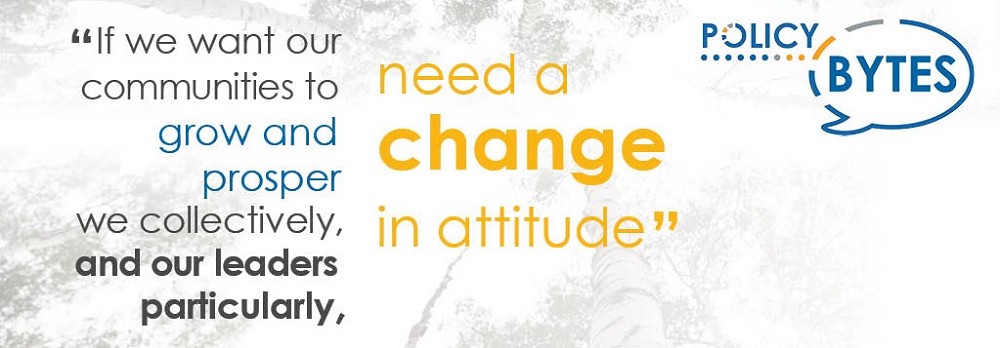Not So Remote North
February 13, 2017 - Near the end of 2016, Charles Sousa, Ontario’s Finance Minister, gave a talk in Thunder Bay. As far as standard talks go, it was a pretty good one. Something happened, however, during the question and answer period that I found quite unsettling. It wasn’t something Sousa did - it was something several leading members of the Thunder Bay community did.
In a series of questions and extended comments our community leaders effectively portrayed Thunder Bay, the Northwest, and northern Ontario generally as remote, inaccessible, and rife with challenges. The primary theme was that “you can’t get there from here”. That was followed with “we are awash in challenges that we simply can’t address on our own”.
If you were someone considering investing or moving here, you would likely have run screaming from the room. Left with the indelible impression that northern Ontario is basically on the far side of the moon. As a newcomer (I have lived in Thunder Bay a little over three years) I can tell you with no hesitancy whatsoever that my experience of the north is entirely different than that described by my community leaders.
I can get from Toronto to Thunder Bay by plane quicker than someone from Toronto can get to their cottage in the Muskokas by car. A flight from Timmins to downtown Toronto is roughly comparable to how long many people spend on a GO train from Barrie to Toronto every day. North Bay, Sudbury, and the myriad smaller communities around them are well within effective distance for close economic ties to Ottawa and Toronto. By that I mean: shopping, working, and entertaining.

The finest bed and breakfast I have ever stayed at is located in Timiskaming Shores. Some of Ontario’s best high schools, based on testing done by the province of Ontario, are located in our back yards. Thunder Bay’s foody scene, Sudbury’s design community, Kenora’s cultural industry (especially their brewers) are second to none. World leading artists live in our rural and remote communities. Northern Ontario has been a leader in distance education for over four decades. I have met progressive local Indigenous and non-Indigenous community leaders who have transformed the lives of their friends and neighbours. Using, in most cases, just the resources available to them locally, with limited help from “outside”.
Don’t get me wrong. We have our challenges. No community is perfect, or as connected, accessible, or prosperous as its residents would like. Mass transit is a challenge. A plane ticket is not nearly as affordable as a train ticket or bus ride. Post-secondary choices here remain constrained relative to other communities. But, if we want our communities to grow and prosper we collectively and our leaders particularly, need a change in attitude.
It can be done. I have lived through it. Halifax, the capital city of a “have-not” province, totally transformed its self-image and, as a result, the image it portrays to the rest of the world. It went from a government town that would die tomorrow if the legislature moved an hour away to a “smart-city”. One with a vibrant lifestyle, active entrepreneurial scene, and a mecca for young and old alike. It did so, frankly, without changing one thing on the ground. The boring, staid, unsustainable Halifax one year was the exact same as the smart, innovative, creative Halifax of the following year.
The only difference, in those early years, was how Halifax’s leadership (business, government and community leaders alike) talked about Halifax. That then impacted how the people who lived there felt and talked and acted. Things have changed since. Money and people have indeed come. But it all started when community leaders decided to stop talking about the problems and start focusing on the opportunities. Halifax got its swagger back. Haligonians followed suit and they collectively “faked it until they made it”.
We can, and must do the same. That starts by reminding ourselves (and everyone else), just how accessible we really are and how much we have going on once you get here.
Charles Cirtwill is President and CEO of Northern Policy Institute. First published in Northern Ontario Business, February 2017.
The content of Policy Bytes is for general information and use. The views expressed in this blog are those of the author and do not necessarily reflect the opinions of Northern Policy Institute, its Board of Directors or its supporters. The authors take full responsibility for the accuracy and completeness of their respective blog posts. Northern Policy Institute will not be liable for any errors or omissions in this information, nor will Northern Policy Institute be liable for any detriment caused from the display or use of this information. Any links to other websites do not imply endorsement, nor is Northern Policy Institute responsible for the content of the linked websites.
Northern Policy Institute welcomes your feedback and comments. Please keep comments to under 500 words. Any submission that uses profane, derogatory, hateful, or threatening language will not be posted. Please keep your comments on topic and relevant to the subject matter presented in the blog. If you are presenting a rebuttal or counter-argument, please provide your evidence and sources. Northern Policy Institute reserves the right to deny any comments or feedback submitted to www.northernpolicy.ca that do not adhere to these guidelines.
